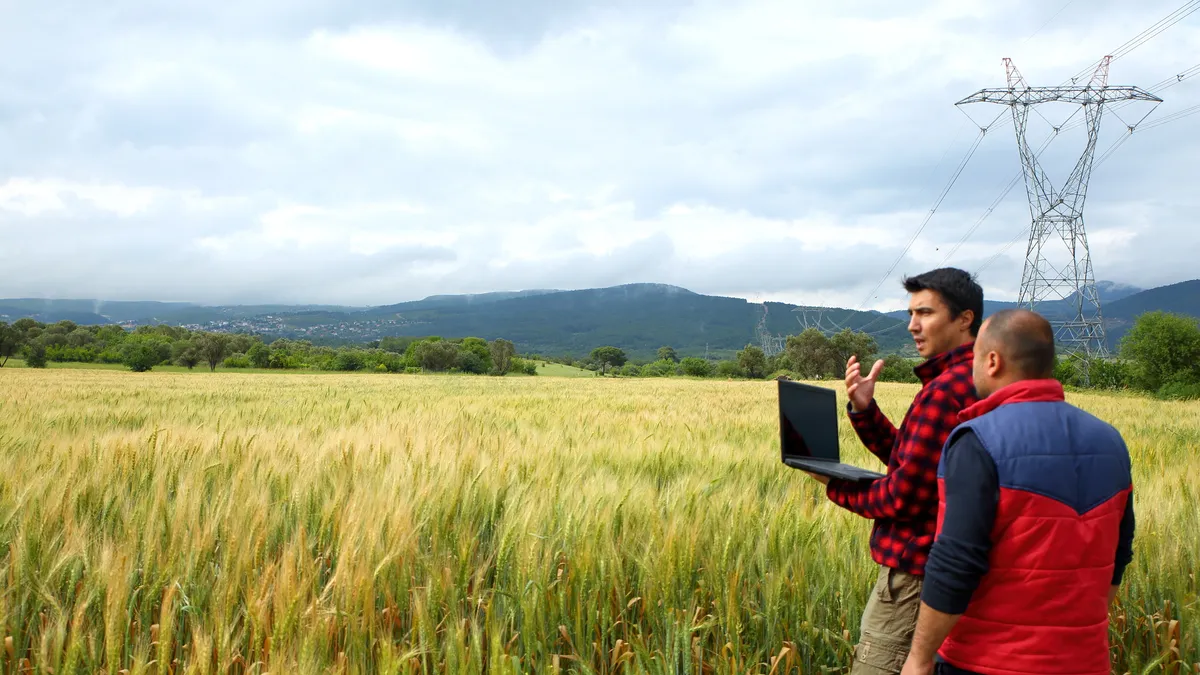Dive Brief:
- The National Rural Electric Cooperative Association (NRECA) announced on Monday plans to install four rural battery storage projects around the nation with funding from the U.S. Department of Energy.
- The projects will install batteries ranging in capacity from 90-500 kW over the next year, integrating some of the batteries into broader microgrid initiatives. DOE will provide technical assistance and $1.3 million in federal funding.
- With the projects supporting everything from military base operations to a single farm, Lauren Khair, a senior analyst with NRECA, said the four projects will demonstrate the versatility of new storage technologies.
Dive Insight:
The adoption of new technology and innovative solutions for grid resilience aren't limited to the realm of large utilities with substantial funding, according to NRECA.
"Energy storage could be a game changer" for energy resilience in rural settings, Khair said. "Sometimes it's not a big battery, but a 90 kW battery that will ensure a customer can keep their lights on."
| Project | Location | Battery capacity | Co-op partner |
|---|---|---|---|
| Farm microgrid | Hyde County, North Carolina | 500 kW | Tideland Electric Membership Corporation (EMC), North Carolina EMC |
| Microgrid with solar, generator | Red Feather Lakes community, Colorado | 250 kW | Poudre Valley Rural Electric Association |
| Military base battery | Fort Bragg, North Carolina | 90 kW | Sandhills Utility Services |
| Military base battery | Ellsworth Air Force Base, South Dakota | ~500 kW | West River Electric Association |
The four projects announced this week will demonstrate the wide variety of uses batteries could serve in rural applications, Khair added. At the military bases, of course, the batteries will ensure critical missions can continue regardless of whether the power goes out. But the same is true for the other two projects — electricity is just as important to operations on the farm in North Carolina, Khair said, and at the Red Feather Lakes, where the battery will help support a community-wide resilience initiative intended to address the threat of wildfire.
Although these four projects will receive funding from the DOE, Khair said she doesn't believe battery technology is out of reach for rural electric cooperatives, which she instead categorized as poised to find innovative new uses for emerging technologies. At least one of the four projects would have moved forward whether or not government funds became available, she said.
"Co-ops … are small and mighty, and they are innovators in the energy space," Khair said. "This is another example of co-ops pushing the envelope with new technologies."
Rural co-ops have already deployed "a large fleet" of batteries, Khair added, with the majority of installations located in Alaska, North Carolina and California. She said she expects co-ops to adopt batteries in rural settings with increasing frequency as the continued evolution of the technology makes batteries more affordable.














